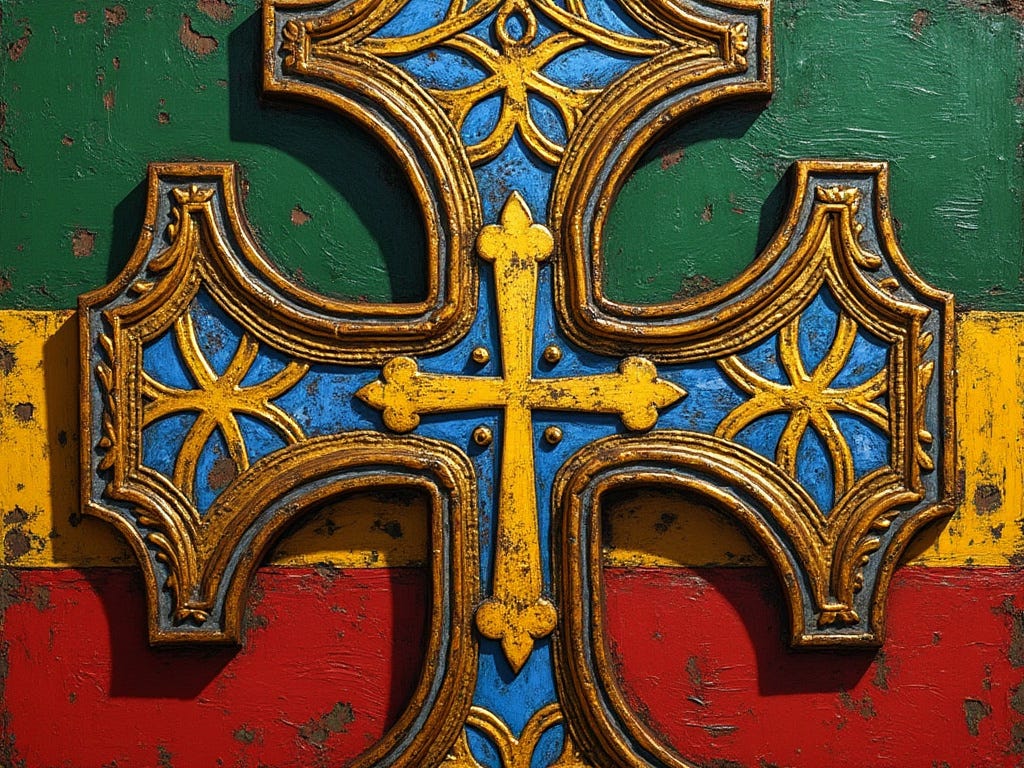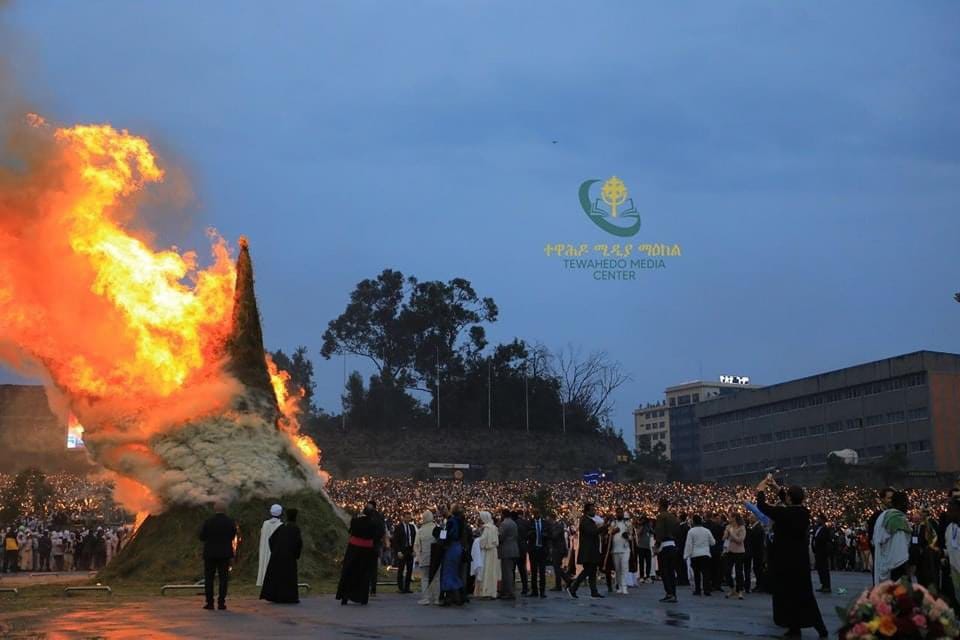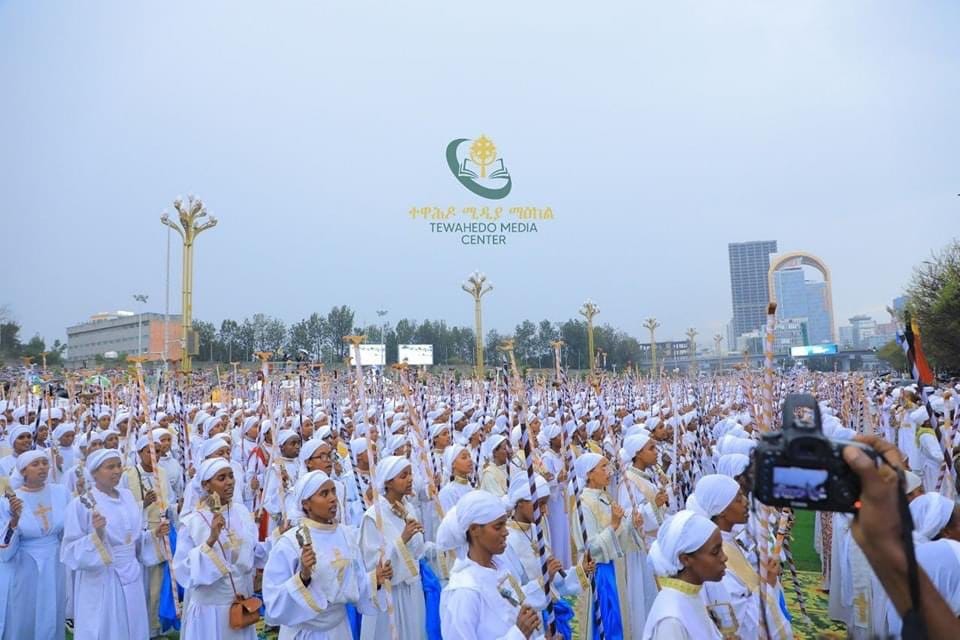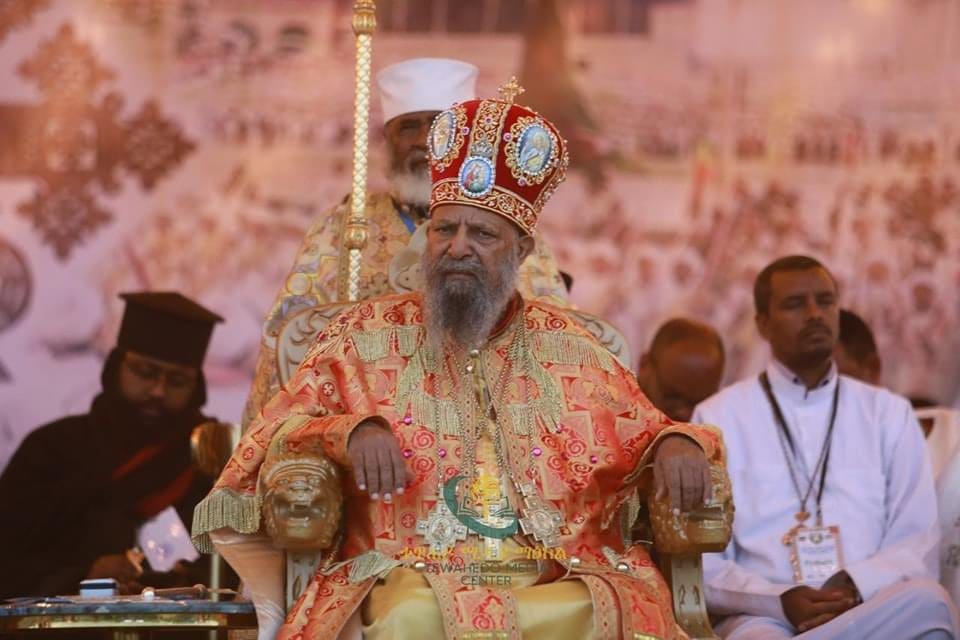Mesqel
The Cross
Relics have both topical and timeless significance. Punch Shroud of Turin or Turin Shroud into your search engine of choice, be it classic or AI-powered, and see the results. Some believe. Some do not. In the 4th Century, St. Helen(a), mother of Constantine, is said to have discovered the true cross of that Jesus Christ was crucified upon. And in the 14th Century Emperor Daweet (David) of Ethiopia is said to have acquired a piece of said cross.
This is what we Ethiopians celebrate today.
And we are not alone. The Russians sent a contingent of clergy to share hymns from their tradition, and no doubt solidify our religious and political ties that go back to both of our heydays as Orthodox Christian empires. The great Alexander Bulatovich was on the ground in Ethiopia, coming to our aid in the aftermath of the first Italian invasion at the end of the 19th Century.
Lest you think relics are just the stuff of superstition, there are biblical examples from the Old and the New testament that might startle you if you are not accustomed to having a mind attuned to the supernatural.
“Elisha died and they buried him. Now the raiding parties of Moab came in the spring. And it happened that they were burying a man; suddenly they saw the marauding band, so they threw the man in the grave of Elisha. As he went in, the man touched the bones of Elisha, and became alive and got up on his feet!”
2 Kings 13:20-21 LEB
And God was performing extraordinary miracles by the hands of Paul, so that even handkerchiefs or work aprons that had touched his skin were carried away to those who were sick, and their diseases left them and the evil spirits came out of them.
Acts 19:11-12 LEB
The bones of the Prophet Elisha, disciple of my namesake the Prophet Elias, resurrect the dead. And the handkerchiefs of the Apostle Paul heal the sick. In the Ge’ez Rite liturgy, Paul is called the healer of the sick as we petition him for his intercession at the culmination of the reading aloud of his letters before the great congregation.
As right and just as the veneration of relics is, the Living God does not want us to stay in a state of awe. Instead, he calls us to action. After the ascension of Christ the men of Galilee were sent forth on their missions to sacrifice their very lives as they lovingly shared the word of life they were entrusted with, which is the greatest family heirloom of all time.
Ever the biblical exegete, St. Jared the Aksumite sings, for this Mesqel feast, this Exaltation of the Holy Cross,
ዕሌኒ ንግሥት ኀሠሠት መስቀሎ
3lénee ngst haseset mesqelo
Helena the queen sought after his cross.
ዕንባቆም ነብይ ዘአንከረ ግብሮ
3nbaqom nebiy ze’ankere gibro
Habbakkuk the prophet, he who wondered at his work.
O Yahweh, I have heard the report of you; O Yahweh, I stand in awe of your works... You went forth for the salvation of your people, for the salvation of your anointed. You crushed the head of the house of wickedness, laying bare from the foundation to the top. You pierced the head of his warriors with his own arrows
Habakkuk 3:1-14 LEB
Here most of the awe or wonder or marveling or fear or sublime feeling is directed at the creation of the heavens and the earth, but it leads to a prophecy of salvation of the anointed, the Christ, the Messiah, and the crushing of the evil one, using his own tool of death and destruction against them. This is the cross. It was a tool of torture and torment and instilling the fear of death in others. Jesus transformed it into a tool of life and instilling hope into the majority of the people on the planet.
How did he do this? Was it by calling upon legions of angels that he had at his disposal to stop the crucifixion? God forbid. It was as it is written,
Think this in yourselves which was also in Christ Jesus, who, existing in the form of God, did not consider being equal with God something to be grasped, but emptied himself by taking the form of a slave, by becoming in the likeness of people. And being found in appearance like a man, he humbled himself by becoming obedient to the point of death, that is, death on a cross. Therefore also God exalted him and graciously granted him the name above every name, so that at the name of Jesus every knee should bow, of those in heaven and of those on earth and of those under the earth, and every tongue confess that Jesus Christ is Lord, to the glory of God the Father.
Philippians 2:5-11 LEB
Kenosis. In order to live, you must empty yourself and refill with God. Habesha culture has a habit of repurposing and reusing jars & bottles. This may be an immigrant mentality. My mother, and many others, put our meeTmeeTa (spiciest ethiopian red pepper) in old marmalade jars. We get bags of this good good from our frequent travels back home, whilst her mother and my father’s mother were still alive to visit, and from the trips of friends and family. Then we would put them in these jars.
Empty yourself and put God in you instead.
The cross is our might. The cross is our endurance. The cross is our redemption. The cross is the salvation of our souls.





